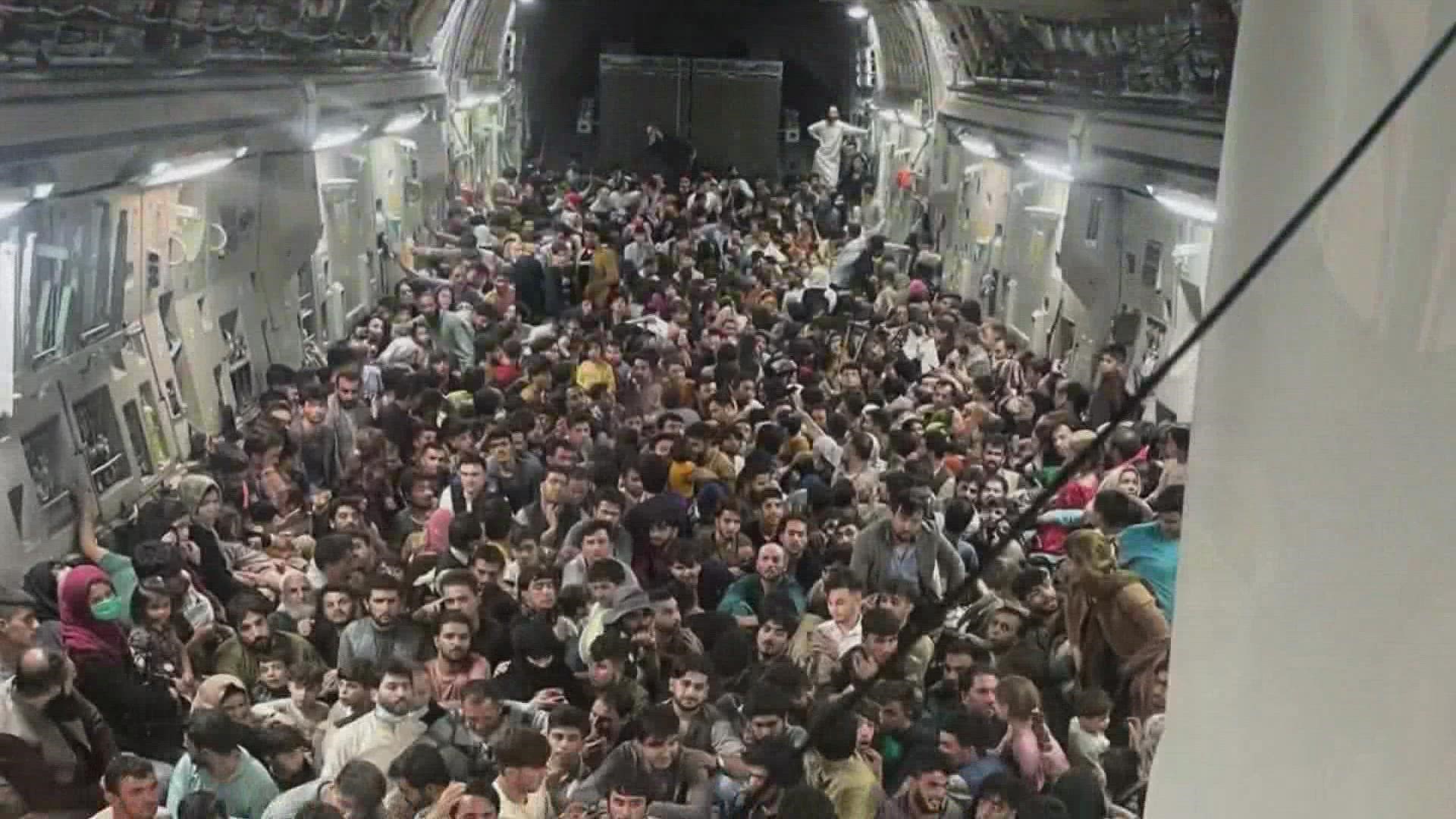DALLAS, Texas — At least 10 Afghan families have been resettled in the Dallas area amid a Taliban offensive in the region, leading to thousands storming Kabul's airport, desperate to escape.
Taliban leaders officially took control of Kabul Monday, settling into the Afghan Presidential Palace and setting up checkpoints throughout the city.
Some of those checkpoints aren't allowing allies or Western citizens through even though they have proper documentation to leave.
Images spilled out of Kabul Monday as families rushed onto the airport runway, clinging to a C-17 plane as it was preparing to take off.
Thousands of U.S. troops are now guarding the airport in Kabul and will be overseeing the evacuation of potentially 22,000 at-risk Afghans over the coming weeks.
That number doesn't include the many U.S. diplomats still waiting to be evacuated.
Those Afghans have served as interpreters, drivers, or civilian advisers to the U.S. military.
The evacuation will be a monumental task, but the Refugee Services of Texas is already working to make sure those who helped the U.S. in its military fight have a home to come to in the states.
The RST said Monday that it expects to resettle 324 Afghan refugees in the coming weeks in cities like Dallas, Fort Worth, Houston and Austin.
The Dallas-area director of the Refugee Services of Texas, Mark Hagar, told WFAA that at least 10 Afghan families have already arrived in the city since the U.S. drawdown.
"What's different about this is the level of urgency," Hagar said. "We're getting 24 to 48 hours of lead time to find somewhere to stay for these folks."
Hagar said that he's working with hotels, apartment complexes, even Airbnb to find temporary housing.
Some people, he said, are even offering up their own homes.
"People are paying attention and helping. These people over there, they're in the danger zone right now," Hagar said.
Refugee Services of Texas has welcomed more than 2,400 Special Immigrant Visas from Afghanistan and Iraq since 2010.
They assist 35-40% of the SIVs who resettle in Texas and 4-6% of all SIVs who come to the U.S. each year.
Most of that assistance comes from both federal funding and private donations.

